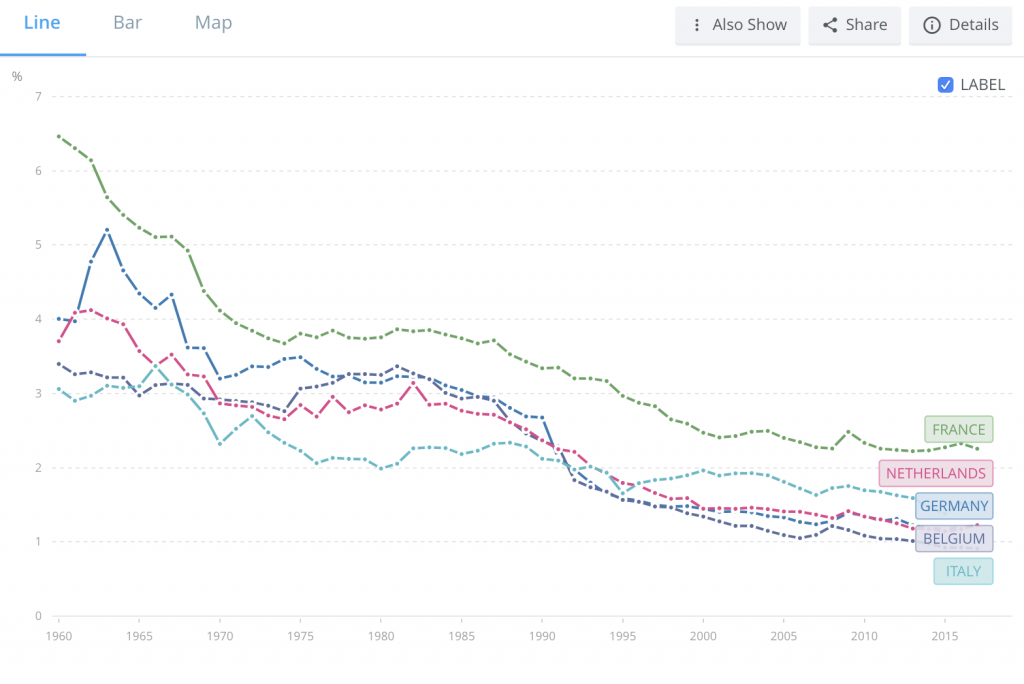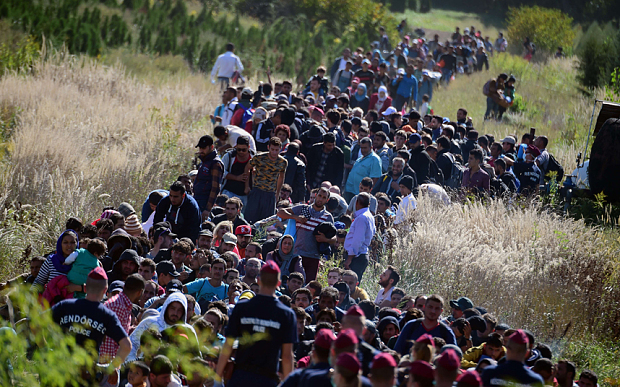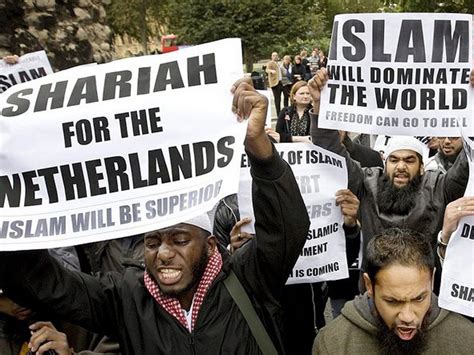The object of war is not to die for your country but to make the other bastard die for his.
George S Patton
This is part 2 of my first article discussing NATO. It’ll make more sense if you’ve read part 1. If you’ve already read it, cool. If not, go now. I’ll wait.
Back?
Great, let’s get on with it.
Conflict is Coming to Europe
One of the main points made in part 1 was that the reasons for NATO to exist have changed dramatically in the past 70 years, and the current structure of NATO is now clearly under threat. In particular, a US withdrawal and refocussing of resources elsewhere.
What this means for Europe is the topic of today’s discussion.
Remember, last week we discussed how the US accounted for most of the military spending in NATO. This has been the case for 70 years and has had a number of second order effects which are rather important, as you’ll see.
Diminished Military Spending by EU Countries
One of the most noticeable effects of NATO has been a collapse in military spending by EU countries.
It’s not hard to see why this has taken place. If you’re a European politician staring at your checkbook, which is, of course, directly tied to your nation’s expenditure, then the existing setup (the US paying for Europe’s security) is the equivalent of one of those free buffets in Vegas. It appeals on every conceivable level.
And it should therefore be no surprise that European military spending has been plummeting ever since the creation of NATO.

This collapse in military spending further accelerated with the formation of the European Union in 1993 with the Maastricht Treaty.
The collapse in spending did actually make some sense on a domestic level.
Think about it: Where individual European countries previously had those scowling guards in combat boots with stubby fingers resting on automatic weapons manning the borders, the need for these gents disappeared when joining the EU. No borders, no border guards. Poof! Gone!
This is great for the military expenditure budget.
I mean who doesn’t want to spend less? And so those scowling booted gents were put to work serving espressos or baking croissants, and the pointy shoes in the budget office could now redirect those funds towards building transgender toilets and cracking down on deadly “hate speech” on Twitter. They get to virtue signal to an entire generation who don’t understand responsibility and pay less. What’s not to like?
3 Reasons for Military Buildup
It was back in 2016 when we explained the rising trend of domestic angst within Europe in our article about “walls going viral”.
We quoted from the Washington Post:
“In 2015, work started on more new barriers around the world than at any other point in modern history. There are now 63 borders where walls or fences separate neighboring countries.”
And then went on to explain the following:
Most of these walls are being erected within the European Union which is not surprising. As mentioned before, Brexit is as much about the refugee crisis, stopping mass immigration, and what is seen by many as the islamization of Britain as it is about the myriad insane regulations the Eurocrats in Brussels foisted on our scone eating and tea drinking friends.
The reasons for the increase in walls being built is due in no small part to threats to domestic security for member states, which incidentally is our first point.
1. Domestic Security
As mentioned, the formation of the EU meant that Guiseppe in Milan could take his girlfriend to Madrid for a dirty weekend away without worrying about pesky borders, and Francois in Strasbourg could pop across to Offenburg for some of that tasty German beer. Again, sans borders.
Now, it’s at this point that I think it worth pointing out that Europeans have historically warred with each other. And no, I don’t mean the “hate speech” nonsense our current clutch of bedwetting lefties get so up in arms about. Real “blow-the-bastards-up” hate. In a word, war.
The formation of the European Union was meant to ensure that nothing as horrific as the Second World War ever came to European soil again.
Unfortunately the pointy shoes in Brussels are ensuring that the tensions between member states will only rise.
[clickToTweet tweet=”The pointy shoes in Brussels are ensuring the tensions between the EU member states will only rise.” quote=”The pointy shoes in Brussels are ensuring the tensions between the EU member states will only rise.”]
And this is where it’s time to bring out the elephant in the room.
Importing wave upon wave of refugees from the Middle East and North Africa, a topic we covered in-depth when outlining the easiest short in recent history.

Why is this a problem?
Western Europe is one giant welfare state where citizens not only believe their governments will take care of them (they can’t) but that they actually should.
The governments keep up the charade by doling out all manner of benefits. Free healthcare, schooling, subsidised transport, and so the list goes on. This is why folks from the Middle East and North Africa want to grab a slice of an easy life.
You and I’d do the same thing if we were in their shoes.
I’d trade a dirty mud hut in the desert with no clean drinking water and sewerage flowing outside for a European apartment with microwave, TV, and central heating in any damn European city any day. How about you?
To be clear, the problem isn’t in looking for a better life. Everyone does that and they should.
The problem lies in the fact that this colonisation (because let’s face it, that’s what it is) is taking place at such a scale that the entire European culture is being overrun. Folks don’t much like that though they’re being told they must embrace it. Don’t be a bigot.
Here’s the thing.
If you and I move to a different country and culture, we’re 1 in a million. Whatever our values, norms, beliefs and culture we bring with us, they’ve little impact on the society we enter.
On the contrary, we are forced to assimilate to the new culture for fear of being ostracised. Pee on the footpath outside the Louvre and years ago we’d have been arrested. You assimilate quickly or find life difficult. And so we assimilate. And if we don’t like it, we choose to leave and go someplace that suits our values better.
But that’s not what’s happening here.
Nope. This is akin to what happened 2,000 years ago when the barbarians migrated into the Roman Empire. The barbarians didn’t give an isht about Roman norms. Nope. They brought their own.
This is why today migrants defecate on the footpaths of Paris and nobody stops them.
Can you see the similarities?

What we’re witnessing now is the migration of millions of largely unskilled, uneducated people with a different language, race, religion, and value system. They are already rapidly making it known that they’re not in Europe to “assimilate” to the new culture.
This influx of millions of migrants only promises to destroy European culture and piss off the locals, who, by the way, are forced to pay for it all.
We’ve long promised that this antagonism would result in a rise in nationalism (how could it not?) and that would be increasingly felt in politics.
Well, here we are and it’s happening.
What this all means for military spending is quite simple. Individual member states are going to increasingly ignore the pointy shoes in Brussels and take matters into their own hands (as they already are) and bring those scowling blokes with the boots and guns back. Watch!
That means more military spending.
2. The Fragmenting European Union
And speaking of the pointy shoes in Brussels, the level of trust between them and the member states is evaporating as fast as the market cap of Germany’s largest bank.

As this trust evaporates it is replaced with distrust.
The reason I show you the collapsing market cap of Deutsche Bank isn’t just to make an analogy. I wish it was.
As Holger Zschaepitz, my favourite German economic reporter, mentions.
#Germany, Europe’s strongest economy, is also its weakest link. Its industry has been supported for too long by artificially low interest & exchange rates, & an unsustainable system of vendor finance to southern Europe which is now coming apart at the seams, GK's Gave writes. pic.twitter.com/oXVMhSo5Kw
— Holger Zschaepitz (@Schuldensuehner) March 24, 2019
This matters because it’s in times of economic distress that people lash out. And right now Europeans have quite a laundry list of things to lash out about.
People forget that Europe as we know it today is a group of tribes which have historically warred with each other.
Further to point 2 above, the countries which joined NATO after the Berlin Wall fell are very different from their Western European neighbours.
Principally, Western Europe welcome migrants while Eastern Europe does not.
In short, the former Eastern European members of NATO have already diverged from their Western counterparts. Trust eroding.
This will accelerate should the economy’s in Europe roll over, and we’re going to see member states diverging on social, political, and yes, military lines.
Which brings me to…
3. New Alliances Form & Increasing Distrust
Witness Italy’s decision last week to join the “New Silk Road”, thus aligning themselves more closely geopolitically with China.
Italy’s decision to join Beijing’s multibillion-dollar “Belt and Road Initiative” may prompt the European Union to tighten its coordination on China amid growing scrutiny of its efforts to expand its global clout, analysts say. Italy’s populist administration – resisting pressure from Brussels and Washington – on Saturday signed a memorandum of understanding with China agreeing to take part in Beijing’s trade and infrastructure scheme, the first G7 nation to do so.
Among the 29 other agreements signed in Rome during a state visit by Chinese President Xi Jinping were two port management deals between the China Communications Construction engineering company and the ports of Trieste, situated in the northern Adriatic Sea, and Genoa, Italy’s biggest seaport.
The agreements also cover areas such as satellites, e-commerce, agriculture, beef and pork imports, media, culture, banking, natural gas and steel.
For more on OBOR, read my article on how China is increasing its global power.
This will really piss off the elites in Brussels as they want control over European matters, especially those of geopolitical consequence.
But as the US pulls back from Europe, so too will China seek to assert itself. And for smaller European countries labouring under the burden of the EU and that ridiculous concept — the one currency — they’ll look to securing both economic and military security.
You may ask yourself, why on earth would Italy not side with Germany for example? That’s a good question.
There exists a deep distrust historically of Germany.
Germany has twice in the last 100 years threatened its neighbours, and it’s the strongest country economically within Europe.
So when Germany begins building its own army, their neighbours will quickly follow suit. Wait for it!
In fact, it’s likely why Macron has been calling for a “European army” as this would essentially diminish German capabilities and lessen the threat.
What are we talking about in terms of numbers for military spending here?
You’ll notice that Germany, the country that all other Europeans will watch, currently spends a minuscule 1.2% of its GDP on its military.
If we are to go back to historical “norms”, we will move to somewhere between 3% and 6% of GDP. That’s anywhere from a doubling to a 500% increase.
Conclusion
The prospect of war coming to Europe is wayyy higher than currently thought. This is a mistake. The signs are all there, flashing red, and the temperature is being dialled up on a daily basis.
Military spending by European member states is going higher, possibly much higher. I wish I was wrong, but I don’t think I am.
-Chris
“How dreadful are the curses which Mohammedanism lays on its votaries! Besides the fanatical frenzy, which is as dangerous in a man as hydrophobia in a dog, there is this fearful fatalistic apathy. The effects are apparent in many countries. Improvident habits, slovenly systems of agriculture, sluggish methods of commerce, and insecurity of property exist wherever the followers of the Prophet rule or live. A degraded sensualism deprives this life of its grace and refinement; the next of its dignity and sanctity. The fact that in Mohammedan law every woman must belong to some man as his absolute property – either as a child, a wife, or a concubine – must delay the final extinction of slavery until the faith of Islam has ceased to be a great power among men. Thousands become the brave and loyal soldiers of the faith: all know how to die but the influence of the religion paralyses the social development of those who follow it. No stronger retrograde force exists in the world. Far from being moribund, Mohammedanism is a militant and proselytizing faith. It has already spread throughout Central Africa, raising fearless warriors at every step; and were it not that Christianity is sheltered in the strong arms of science, the science against which it had vainly struggled, the civilisation of modern Europe might fall, as fell the civilisation of ancient Rome.” ― Winston Churchill, The River War


